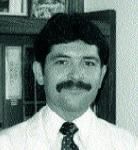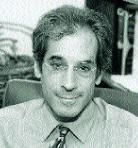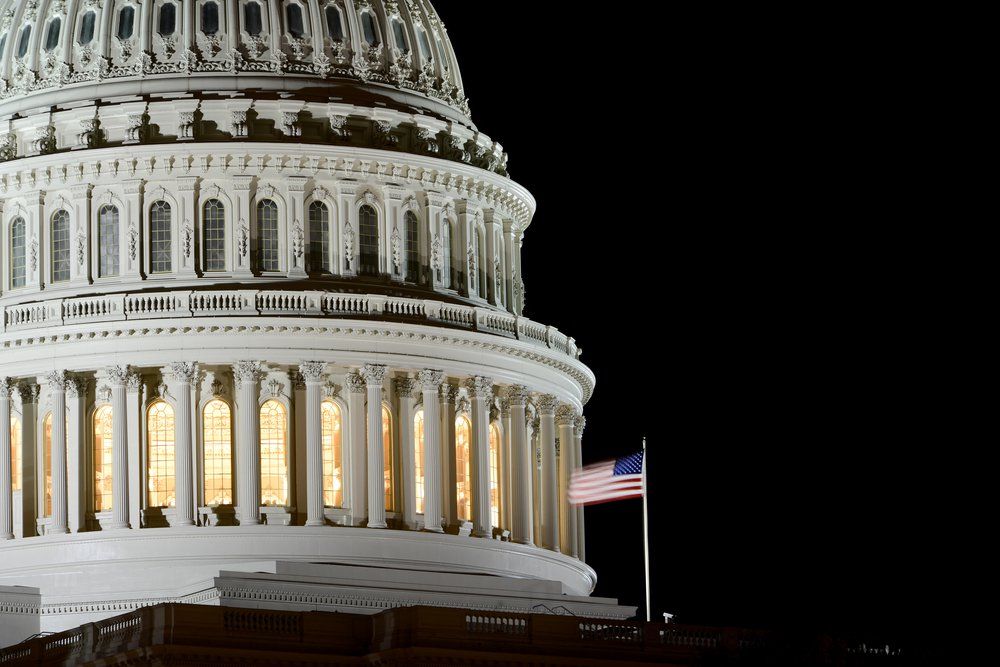Article
Should doctors prescribe religion?
Some say spirituality is good for patients' health and that you should encourage it. Others say physicians have no right to tread on such sacred ground. Two researchers square off on this controversial topic.
Point / Counterpoint
Should doctors prescribe religion?
Some say spirituality is good for patients' health andthat you should encourage it. Others say physicians have no right to treadon such sacred ground. Two researchers square off on this controversialtopic.
Interviews by Group Practice Editor, Anita J. Slomski.

Although separation of church and state is one of the cornerstones ofour nation, Americans are a decidedly religious people. Consider that 96percent believe in God, 43 percent attend church regularlyand about halfwant their physicians to pray with them.
Psychiatrist and geriatrician Harold G. Koenig thinks doctors shouldnot only oblige patients in prayer, but also actively encourage religiouspatients to maintain their spirituality. Koenig, director of the Centerfor the Study of Religion/Spirituality and Health at Duke University, haspublished more than 150 scientific articles and chapters and has authoredor co-authored 11 books on religion and health. He is one of several researcherswho claim that religious activities may confer a long list of health benefits,including a seven- to 14-year greater life expectancy, lower blood pressure,a stronger immune system, 60 percent reduced risk of dying from arterioscleroticheart disease or pulmonary emphysema, greater survival chances after cardiacsurgery, less depression, and better ambulation following hip surgery.
Those findings may not be surprising to physicians. According to a pollof 269 FPs in 1996, 99 percent agreed that spirituality can aid healing.In a separate survey of 300 HMO executives, 94 percent said that prayerand religion can speed recovery. And more than 60 of the nation's 125 medicalschools offer classes in spirituality and health.
But some experts, like psychologist Richard P. Sloan, debunk the researchlinking religion and health as junk science. Sloan, who is director of thebehavioral medicine program at Columbia-Presbyterian Medical Center in NewYork, warns that physicians cross ethical lines by delving into the veryprivate realm of patients' beliefsespecially given the lack of empiricalevidence that religion improves health outcomes.
Koenig and Sloan bring the opposite ends of the continuum together inthese point/counterpoint interviews with Medical Economics' Group PracticeEditor, Anita J. Slomski.
Harold G. Koenig, MD

Director, Center for the Study of Religion/Spirituality and Health,Duke University; associate professor, departments of psychiatry and medicine,Duke University Medical Center
Q. Why are you convinced that religion promotes health?
A. Studying patients over time, we can directly demonstrate thatthere is at least an association between religious involvementattendingchurch, Bible-study groups, prayer groupsand less frequent hospital admissionsand shorter stays. There are several reasons for this. First, people offaith tend to cope better with stress. Overall, they have less depressionorat least recover sooner from depression. And we know that depression isa factor in longer hospital stays, slower recovery and rehabilitation, andnoncompliance with medication. Second, churchgoers generally smoke and drinkless, exercise more, and engage in other healthy behaviors. And third, religiouspeople usually have wider support networks, which enable them to bettercope with illness and other setbacks. As part of a caring community, theyare also more likely to have their health problems diagnosed and treatedearlier.
Q. What specific improved health outcomes have you observed in religiouspatients?
A. We looked at 542 patients age 60 or older who were admittedto neurology, cardiology, and general medicine services at Duke UniversityHospital. The average stay for those with no affiliation with a religiouscommunity was 25 days, compared with 11 days for those who had a religiousaffiliation. Also, patients attending religious services at least weeklywere 43 percent less likely to have been hospitalized in the previous year.
Q. Can't people get a similar health benefit by being a member of,say, a garden club?
A. Involvement in a social group is certainly conducive to betterhealth, but the effects of camaraderie are enhanced for members of religiouscommunities. These people share a belief system and worldview that goesdeeper than simply having a common interest in flowers. Members of a seculargroup may or may not take fellow members to the doctor or provide them withmeals. People in a religious community commonly do these things and more.
Q. Is it the lower incidence of depression in religious people thatshortens their hospital stays?
A. We've found that depressed patients are in the hospital twiceas long as patients of the same age and illnesses who aren't depressed.It helps, too, that religious people feel they have a certain amount ofcontrol over their illness. That's not spooky or magical. They don't losehope because they feel that God is personally interested in them and willrespond to their prayers. And if they should die, they believe they willgo to eternal paradise. How can you be more optimistic than hat? This positiveoutlook keeps people taking their medications and doing their best to getwell.
That's not to say that patients who replace medical therapy with religionalone are better off. In most cases, they'll be sicker if they stop takingmedication and go to a faith healer.
Q Your critics have taken issue with the quality of the studies thatshow a relationship between religion and health.
A. You know, there hasn't been a lot of research money to fundhigh-quality studies in this area. Most researchers do these studies intheir spare time, or they throw a religious variable into other studies.So I'm not surprised that the studies lack depth, or that researchers haven'tadequately controlled for variables.
But when you have 1,200 studies by hundreds of investigative groups aroundthe world, and 800 of them yield the same results, you can overlook certainflaws. Also, the studies within the last two or three years have been donewell, using state-of-the-art statistical methodology. I'm talking aboutstudies published by Duke, the University of California, Harvard, and theUniversity of Michigan.
Critics like Sloan say that once you control for factors such as stress,social support, and better health behaviors, religion is not associatedwith improved functioning. But that's like saying if you control for thewind and rain in a hurricane, the storm creates no damage. If you try tocontrol for all the factors that explain the effect of religion, you'regoing to wipe out the effect.
Q. Let's take a specific criticism. Sloan says that the findings associatingreligiousness with lower mortality are inconsistent. Some studies don'tprove that association; others prove it only with women.
A. Are you going to dismiss this finding because only women hadlonger survival?
One of those studies he refers to followed more than 5,000 people forover 28 years, and almost 3,000 of them were women. It showed that womenhad about a one-third reduction in mortality over those 28 years if theywent to church once a week or more. Now, you cannot dismiss that findingbecause it applies to two-thirds of the population. [Since women outlivemen, women are two-thirds of the elderly population.]
That was a great study. It controlled for more factors than most behavioralscience studies do. And it still found a 35 percent reduction in mortalityin elderly churchgoing women and a 25 percent reduction in religious men.
Q. Why do women seem to gain a greater protective effect from religionthan men do?
A. Social relationships within the church and elsewhere are moredeveloped among women, which is why women do so much better when their spousesdie than men do. Other studies that didn't just look at church attendancefound that chronically ill men benefited more from mere religious copingpraying,believing, submitting to Godthan from actually attending church.
People increase their reliance on God as they get sick. Those who arehealthy and content often don't have much need for religion. But when youget sick, you start praying as a way of coping. Many times, you'll findthat people who are the sickest appear to be the most devout, because that'swhen they start turning to religion.
Q. What would you like to see physicians do in terms of discussingreligion with patients?
A. As part of taking a medical history, physicians should askeach patient in an objective way, "Do you use religion to cope withhealth problems?" In our study at Duke, we found that 42 percent ofpatients brought up religion spontaneously, without our even asking aboutit. Sure, Duke is in the South, where you'll probably find more religiousexpression, but 90 percent of Americans report that they pray. If a patientis religious, the physician can then mobilize resources to meet those spiritualneeds during illness. The doctor might ask the chaplain to visit the patientor arrange for the patient to have spiritual reading material that willhelp him cope. A physician can also encourage religious patients to praymore and, if they attend religious services, to continue to do that.
We're not advocating that physicians prescribe religion. Consider theold adage: To cure sometimes, to relieve often, to comfort always. Comfortinvolves supporting what the patient finds helpful in coping. Thephysician can be an atheist and still ask the patient about the importanceof religion in his or her life. And if the patient isn't religious, that'sthe end of the discussion.
Asking about religion also helps the doctor determine whether the patientbelieves more in praying than in taking medication. That's something thatthe doctor needs to know.
Q. What if the patient says he believes in divine intervention andwon't take his medication?
A. That's when you have to call the chaplain and perhaps the patient'spastor. Most doctors don't realize chaplains must complete four years ofcollege, three years of divinity school, one to four years of clinical pastoraleducation, plus oral and written exams. These are tremendously trained professionals,and we ought to utilize them.
Of course, some patients prefer to talk to their doctor rather than achaplain, and there's no reason a physician can't address religious or spiritualissues depending on interest and skill level.
Q.What would that conversation be like?
A. Almost always, the conversation should be initiated by thepatient. But if he's dying and the family is in acute distress, the physiciancan initiate a religious discussion, provided he knows that the patientand the family will be receptive.
A patient may ask a doctor to pray with her because it relieves anxiety,especially before surgery. And that can make a world of difference to thepatient, both psychologically and physically. There is research that showsthat wounds take one-quarter to one-third longer to heal if the patientis stressed.
The doctor doesn't have to come up with an elaborate prayer. He can sitthere while the patient prays and say "amen" at the endwhichsimply means "so be it." It doesn't matter if the patient is prayingto God, Buddha, or the random forces of nature. Since saying "amen"doesn't require a belief in God, even an atheist physician can support apatient in prayer in order to reduce anxiety.
Q. Sloan makes the point that doctors abuse their status as professionalswhen they promote a nonmedical agenda like religion and spirituality.
A. We are not advocating that doctors proselytize. We are sayingthat religion appears to be linked with health and coping, so doctors needto pay attention to patients' religious activity. Doctors get involved inmany sensitive issues that affect patients' health. For example, patientswith multiple sex partners should be counseled against promiscuity becauseit increases the risk of AIDS. The goal of physicians is to enhance patients'health any way they can. And it's a lot easier for patients to attend churchthan to get married or get wealthyboth of which are associated with betterhealth.
Q. There's a concern that a doctor talking to a patient about religionmay cause the patient to link sickness with guilt at not being more devout.
A. To some extent that's true. But guilt can be a by-product ofany behavioral intervention. If you tell a breast cancer patient to reduceher stress level and get involved in social groups, and she doesn't, she'llfeel guilty if her cancer advances. The association between guilt and religionis even stronger. When people get sick, they may already be asking God whatthey did to deserve this. So if a physician doesn't ask about religiousissues, the patient may be feeling guilty and anxious, with nobody, suchas a chaplain, to help him understand that weak faith doesn't cause illness.As I've said, very sick people often become devoutly religious because theirillness has led to a deeper spirituality.
The idea is never to challenge a person's faith or imply that someoneis insufficiently devout, but to support whatever faith exists. So if apatient tells me she doesn't go to church much and prays only occasionally,I'll say, "Great. I support you in continuing to do those activities,because they might help you to cope a little better with your illness."
Sloan brings up some good points on the ethics of physicians' delvinginto patients' religion, and I agree it has to be done very sensitively.But he's looking at the part of the glass that is half-empty, and I'm lookingat the part that's half-full.
Richard P. Sloan, PhD

Director, Behavioral Medicine Program at Columbia-Presbyterian MedicalCenter in New York; chief, department of behavioral medicine at the NewYork State Psychiatric Institute; associate professor, department of psychiatry,Columbia University College of Physicians and Surgeons.
Q.What bothers you about the claim that religious involvement is associatedwith better health?
A. There is no doubt that religious and spiritual beliefs provideenormous comfort in times of illness. But the evidence of an associationbetween religion and health is very weak. The studies often have methodologicalflaws, and even well-conducted studies lack consistency; some show thatchurch attendance is associated with reduced mortality, and some don't.My position is that we need much better empirical findings before physiciansuse religion as a clinical intervention.
Let me be clear, however, that we've looked only at studies that linkedreligious involvement with physical health outcomes, not mental health outcomes.
Q. Give me a specific example of where you think the science fallsshort.
A. A senior epidemiologist at Johns Hopkins published a papersome time ago showing a prospective association between church attendanceand mortality. A few years later, he qualified his findings because he hadfailed to control for an important covariablefunctional capacity. Thesicker patients were indeed nonchurchgoers, but that was because they weretoo sick and incapacitated to attend church. So rather than church attendanceinfluencing health outcomes, it was the other way around.
A different study reported that religiousness was associated with betterambulation among elderly women after surgical repair of broken hips, butit did not control for age. In another large study, attendance at religiousservices was associated with increased functional capacity in the elderly,but only for three of the seven years the data was collected. It wasn'tassociated with mortality at all.
The problem is that all of these epidemiological studies look at associations,and there's a difference between an association and a causal relationship.It's impossible to conduct an intervention study to examine the impact ofreligion on health. You simply can't take a group of patients at randomand make half of them religious and the other half atheists. And in theabsence of intervention studies, you can't justify making religious activityan adjunctive medical treatment.
Now, you can argue that religious activity provides social support andreduces risky behaviors such as drinking, drug use, and sexual promiscuity.But there are other ways to get social support and deliver those behavioralmessages. I see nothing wrong with a physician's telling a patient to leadan active lifeas long as the advice doesn't focus exclusively on religion.Make a broad recommendation that patients do volunteer work, join a club,become a member of a church or synagogue.
Q. Should physicians be asking about a patient's religious involvementduring a medical history?
A. Physicians are duty-bound to understand their patients, soit's appropriate to ask about religion to determine whether it will influencea patient's medical decisions. But that is not the same thing as a physician'sasking what he can do to support the patient's faith. There appears to besolid evidence that being married promotes longevity and health. Yet itwould be outrageous for a physician to recommend that single patients getmarried. There's a big difference between taking marital and religious factorsinto account and taking them on as objects of interventions.
Q. Koenig says that supporting a patient's religion isn't the sameas advocating that a patient become religious.
A. I don't believe that for a minute. That puts him in a terriblebind. If he believes that there is strong evidence associating religionwith better health outcomesand I'm sure he doeshe would be derelictin his duty as a physician if he didn't advocate religion. Physicians whobelieve the evidence is overwhelming that antibiotics are the appropriatetreatment for pneumonia don't ask whether the patient likes antibioticstheysimply prescribe them.
Q. You believe that linking religion to health can actually do harmto the patient because it can introduce feelings of guilt and moral failure.
A. Absolutely. I was visiting a research patient in a semiprivateroom in the oncology unit. The other patient happened to get her biopsyreport right then, and it was negative. Her father, on hearing the news,said, "We're good people, so we deserve this." Now, how was thepatient I was visitingwhose biopsy had come back positivesupposed tofeel? That she wasn't a good person? It's bad enough that she's seriouslyill, but it's just unconscionable to suggest that her illness implies insufficientfaith.
Q. Koenig agrees that this is illogical and pernicious thinking, andthat highly trained chaplains can set patients straight.
A. It's interesting that he refers to chaplains. There are plentyof clergymen available to help patients with their spiritual concerns, andthey should be sought out. I just don't want physicians to take on thatrole. I also have a problem with medical schools' teaching classes thatencourage physicians to make religious interventions or probes.
Q. Why do you think that medical schools are offering classes devotedexclusively to religion and spirituality?
A. I honestly don't know. But you can hardly pick up a magazineor newspaper without finding some story about this. Medical schools areresponsive to popular cultural issues. There's money available to supportthe development of such courses, and in these times of uncertain fundingfor medical education and research, that kind of money talks.
Q. You note that one study claims 48 percent of hospital inpatientswant their physicians to pray with them. How should a physician respondto such a request?
A. Patients want all sorts of things that are not necessarilyin their best interests. They've asked for laetrile, shark cartilage, andSt. John's wort. But just because a patient wants something doesn't meana physician has to offer it if there is no good base of evidence that it'seffective. If patients express the desire for their physician to pray withthem, the physician should politely and respectfully refer them to theirpastor, priest, or rabbi.
Now, some physicians want to pray for their patients. There are manydeeply religious physicians who view medicine as part of their religiousmission. That's terrific, but they don't have to evangelize. By all means,pray for your patients if you want to, but do it by yourself.
Q. What should a physician say when a patient asks, "Doctor,what did I do to deserve this illness?"
A. It isn't helpful to think in those terms. The best thing wecan do is to try to cure the illness expeditiously. If you have religiousor spiritual concerns about this, I recommend a talk with your spiritualadviser.
Q.Why is this issue so controversial?
A. Because of the place that religious freedom has in this society.Physicians have enormous influence over patients, who are expected to followtheir recommendations. But when physicians depart from their medical expertiseand enter the religious realm, there's an element of coercion because patientsdon't want to offend or disappoint their doctors.
Q.What kind of research do you do?
A. I study how psychological factors such as depression, hostility,and anxiety influence the risk of heart disease.
Q. Any parting comments?
A. Yes. There was a time when physicians didn't talk to theirpatients about smoking, diet, exercise, or sex. Now these topics are consideredappropriate for clinical medicine. But that doesn't mean that religion isthe next great frontier. It's quite demeaning to suggest that recommendingreligionbeliefs that go to the very core of a person's beingis no differentfrom recommending a low-fat diet. Even if there were convincing evidenceof a relation between religious activity and beneficial heath outcomes,the ethical concerns of a physician's getting involved in a patient's religionremain.
Anita Slomski. Should doctors prescribe religion?. Medical Economics 2000;1:144.





